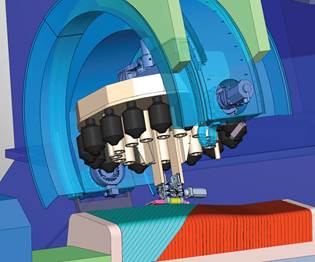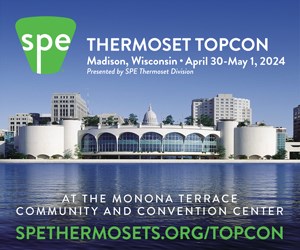The days of trying to prove the legitimacy of AFP and ATL technology have passed. The difficulty no longer lies with validating the concepts, but instead with figuring out how to maximize the potential of automation. Money fades whenever this equipment performs non-value-added tasks. Consequently, AFP and ATL owners want to eliminate unnecessary operations so the machines can focus on production. Through the use of the “digital twin” and simulation tools, composites programmers can optimize their programs before they ever run, thus increasing up-time and freeing the system to manufacture valuable products.
Primary Topics:
- How simulation can be used to eliminate costly “dry runs.”
- How to compile data for better cycle-time estimates for process planning.
- How to detect robot singularities and reach issues.
- How to identify and avoid inconsistent heating during layup.
Presenter:
Andre Colvin
Composite Product Manager, CGTech
Mr. Colvin is the Composites Product Manager at CGTech, and has supported the composite software product line since 2016. Mr. Colvin’s involvement in advanced composites began in college where he graduated with a B.S. in Engineering focused on the theory and manufacturing of composites. After college, Andre took an intern position at SpaceX as a Composite Manufacturing Engineer where he worked primarily on the development of the Falcon 9 rocket. Prior to joining CGTech, he was a Lead Composites Manufacturing Engineer responsible for composite process planning and tool design for an aerospace parts vendor in Lake Forest, California.










